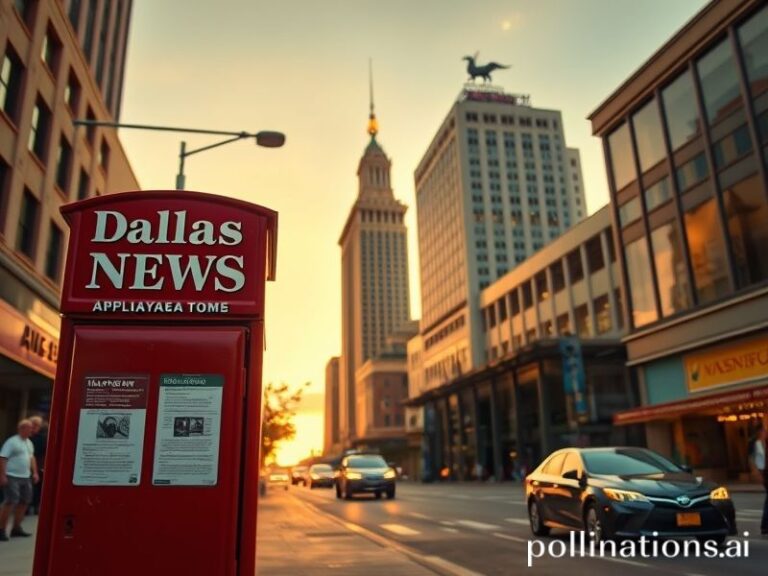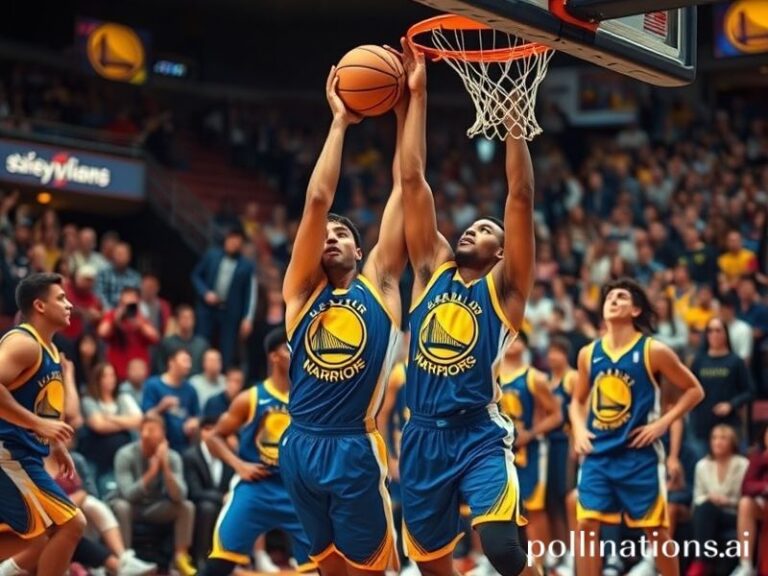Camila Cabello: The Pop Diplomat Trading Havana Heartbeats for Global Beats
Somewhere between Havana and Hollywood, Camila Cabello has become the global pop equivalent of a diplomatic passport—stamped by Miami, validated by London, and occasionally detained by Beijing’s censors for “excessive pelvic swaying.” Born in Cojímar to a Mexican father and a Cuban mother, then shuttled across hemispheres like a well-mixed mojito, Cabello embodies the 21st-century migrant dream: leave one country for another, then monetize nostalgia for both.
In geopolitical terms, her career is a soft-power trade surplus. While the U.S. weaponizes Spotify playlists the way it once did banana republics, Cabello cheerfully exports Latin rhythms to suburban earbuds from Stockholm to Seoul. The irony, of course, is that her breakout hit—“Havana”—is a sepia-toned postcard to a city most of her listeners couldn’t locate on a map without GPS and a functioning State Department. Yet the song’s streams now outnumber Cuba’s annual tourist arrivals, proving that imperialism has simply swapped gunboats for algorithms.
Europe, ever the self-appointed arbiter of taste, greeted Cabello with the same enthusiasm it reserves for overpriced rosé: skeptical at first, then embarrassingly enthusiastic. The Brits knighted her with a BRIT Award; the French shrugged until she sampled Stromae; Germany just wanted to know if she could fill a tent at Oktoberfest. Meanwhile, Latin America watched like an older cousin who’s already seen this telenovela: proud, slightly protective, and quietly calculating royalty splits.
Asia—never one to miss a demographic dividend—turned Cabello into a K-beauty ambassador, proving that soft cheeks sell as well as soft power. In Japan, her face graces limited-edition Kit Kats; in China, her lyrics are scrubbed cleaner than a Wuhan lab, lest the youth start pining for pre-revolutionary Cuba. The result is a pan-continental feedback loop: the more she’s sanitized for one market, the more risqué she becomes for another. Capitalism’s answer to Schrödinger’s embargo.
Of course, every global icon eventually has to address the carbon footprint of their fame. Cabello, ever the conscientious pop star, offsets emissions by posting climate infographics between private-jet selfies—an eco-gesture as meaningful as a detox tea cleanse after a Vegas bender. Still, the UN trotted her out for a mental-health campaign, because nothing calms anxious youth like a millionaire telling them to “just breathe” from inside a gated villa.
The pandemic briefly grounded her, forcing Cabello to perform on Zoom like the rest of us mortals—though her Wi-Fi never dropped during high notes, a privilege even WHO officials couldn’t secure. She used the downtime to pivot from club bangers to confessional ballads, proving that global trauma is marketable if you rhyme “isolation” with “vibration.” Critics called it growth; cynics called it brand optimization. Both are probably right.
Now, as NATO debates TikTok’s threat level and AI composes Eurovision entries, Cabello stands at the crossroads of cultural commodification: half diplomat, half product placement. Her next album, reportedly recorded in five languages and zero acoustic studios, promises to “unite the world through rhythm”—a slogan so optimistic it could only come from someone who’s never queued at a U.S. embassy.
In the end, Camila Cabello is less a singer than a customs form: declaring influences, dodging tariffs on authenticity, and always, always checking the box marked “global citizen.” The world keeps stamping her visa, knowing full well she’ll never really stay anywhere. And why would she? In an era when borders harden and passports lose pages overnight, the smartest move is to keep moving—to the next market, the next chorus, the next lucrative contradiction. Havana may be unreachable for most, but its branded ghost drags in 3.7 billion streams a year. Not bad for a girl who started by posting covers on a platform now banned in her birthplace.
Somewhere, a diplomat is taking notes.







